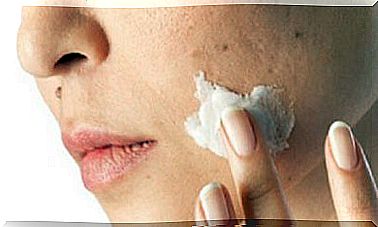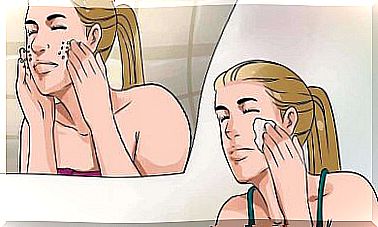The Different Treatments For Dysphagia

Treatments for dysphagia depend on the type the patient is suffering from. In this article you will learn all about the different types and how they can be treated.
Most cases require strict medical therapies and even surgery. However, a doctor must make an accurate diagnosis before deciding on a treatment. Some dysphagia are temporary, while others are serious, even oncological problems.
Dysphagia and its types

Dysphagia is having trouble swallowing. In other words, the patient feels pain when something goes down the throat. If the problem is the throat itself, then we could be dealing with infectious or inflammatory odynophagia. Dysphagia is when a person has difficulty swallowing food or saliva from the oral cavity into the stomach.
As you can see, multiple organs play a role in this condition, making it more complex. In addition, it can be a problem to swallow liquids or solids. These small symptoms are largely leading in the diagnosis. These are the types of clinical presentations:
- Mouth-pharynx. This dysphagia is the classic problem of swallowing liquids and food at a high level. It’s in the throat. The most common causes of this type are neurological. Stroke patients suffer from it, making it difficult for them to eat. This can lead to other complications, such as dehydration and weight loss.
- Esophagus. As the name implies, this dysphagia is located in the esophagus, lower than the previous one. It happens with both liquids and solids. The esophagus is a hollow and tubular organ that promotes obstruction in neoplastic processes. The most serious cause is, of course, cancer.
Treatments for Oropharyngeal Dysphagia
First, to treat oropharyngeal dysphagia, the medical professional must first diagnose the condition. The first causes they look for are those that can be corrected through habit adjustments.
One of the first things medical professionals suggest is dietary changes, such as adjusting the textures and amounts of food. The goal is to help the patient swallow and digest food.
Posture is a determining factor in patients who suffer from neurological disorders as a result of primary pathologies or after-effects. For many, just changing their neck position when they eat is enough to correct dysphagia.
Rehabilitation processes are also used in this important daily activity. We learn to eat when we are young. However, patients who have a stroke, for example, have to learn to do it all over again. Nutritionists and physiotherapists alike teach patients to eat again.
In complex cases, doctors can prescribe nutritional support or adaptive feeding devices (Spanish link). If, despite the adjustments, the patient does not eat or lose weight and becomes dehydrated, his doctor will prescribe one of these remedies.
- The most common are nasogastric tubes or a tube.
- Although the surgical variant is less common, it is still an option when starvation is a risk.
Treatments for Dysphagia: Esophageal Dysphagia
Esophageal cancer is not the only cause of this type of dysphagia. Correct treatment therefore depends on the correct diagnosis. Perhaps the patient suffers from esophagitis, an inflammation of the esophagus. They may also have achalasia, which means that the lower esophageal muscle (sphincter) does not relax properly to allow food to enter the stomach.
If a doctor chooses the surgical route, then they will likely resort to an endoscopy. To do this, they insert a flexible fiber tube that runs through the upper GI tract, looking for obstructions.
The device has a camera and tools that allow the surgeon to work. If they find a foreign object, they must remove it. In addition, surgeons can also take biopsies.
The endoscope can also perform dilations (link in spanish) to allow elements to move into the esophagus in patients with severe obstructions due to a reduction in the esophageal lumen. Some of the medications that can address the problem without surgery include the following:
- Calcium blockers. These drugs claim to regulate smooth muscle contractions in the esophagus. However, their effectiveness is disputed by clinical studies.
- Proton Pump Inhibitors. More used as adjuvants. They reduce the production of hydrochloric acid in the stomach, thus reducing reflux. This causes esophageal irritation.
- botulinum toxin. Experts have experimented a few times with injecting this substance (Spanish link), but the results have not been entirely promising. First, the substance must be applied every 6 months to maintain the effect. The patients who benefited from it also underwent surgery.
Treatments for dysphagia are complex

Treatments for dysphagia vary depending on the cause. Sometimes dietary changes are enough. However, other cases require medications or surgery.
As you have seen in this article, it is not easy for doctors to address and treat dysphagia. Serious underlying causes, such as cancer, require an accurate diagnosis that leaves nothing to chance.
For this reason , it is important that patients visit their doctor as soon as possible and follow their indications. This condition can lead to malnutrition and dehydration.









